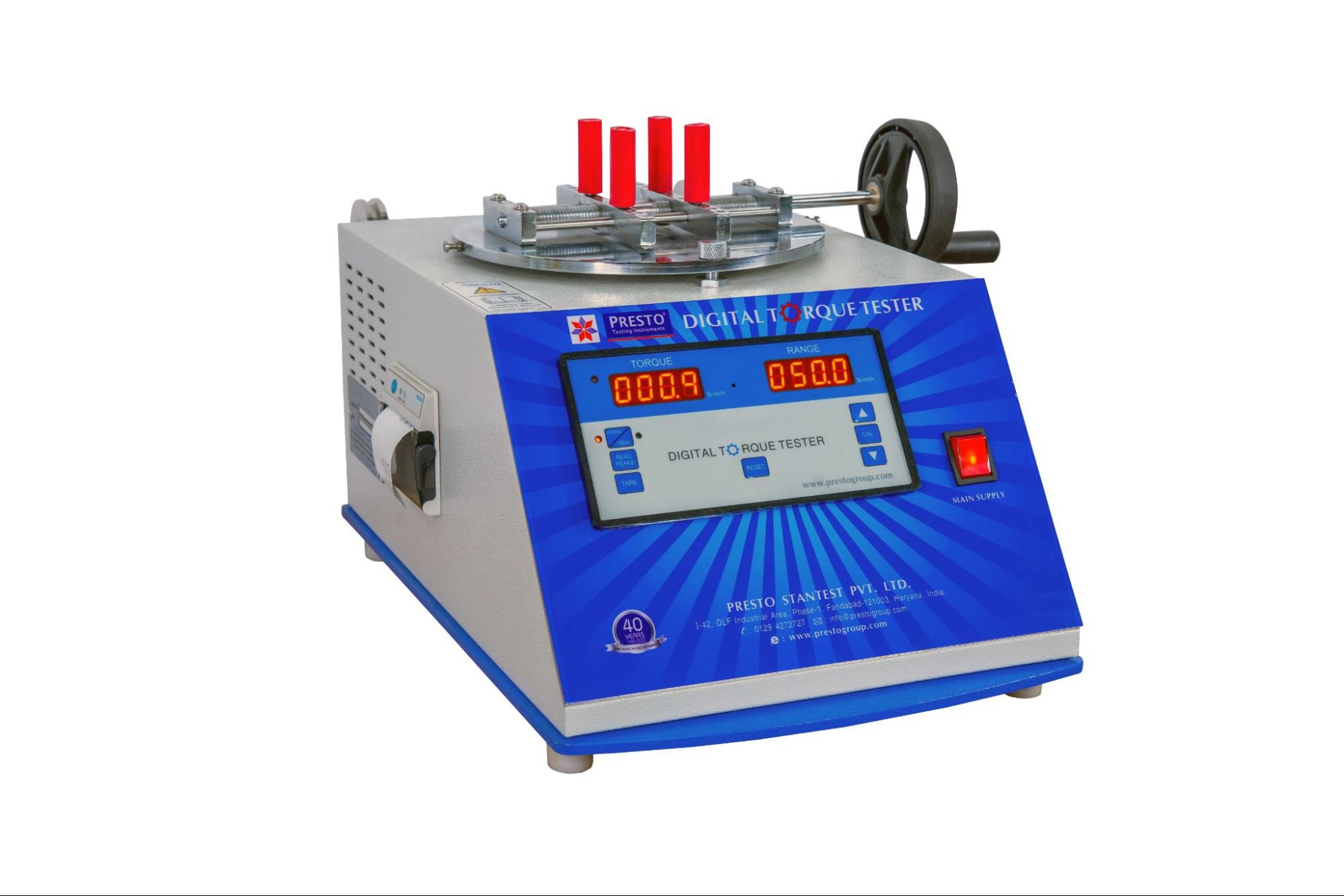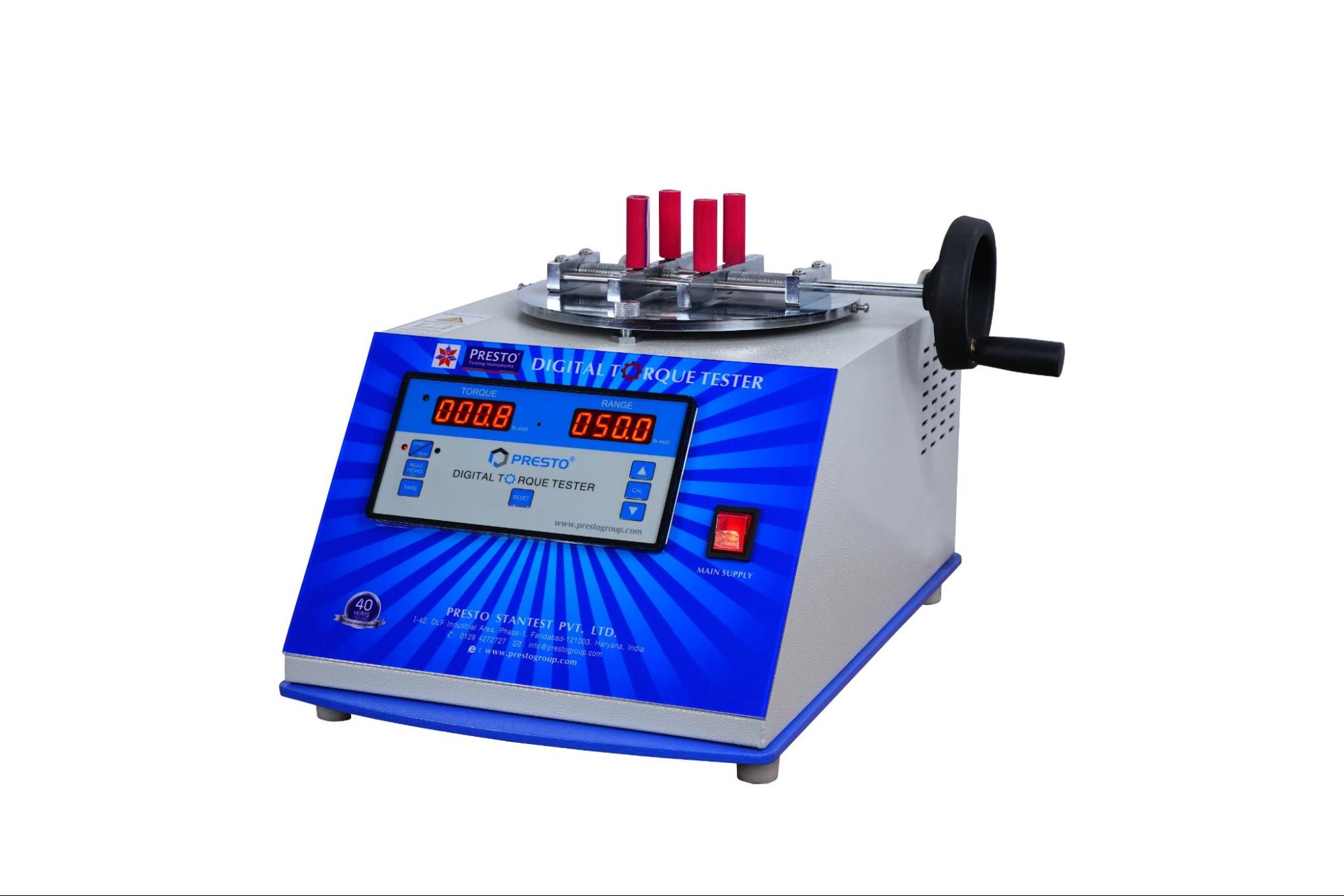

Gaurav Malhotra
07-10-2024
Precision is the name of the game in the production line. Every component, every assembly, and every connection must be according to very stringent specifications. One of the most important tools to meet that requirement is the torque tester. Whether this is automotive manufacturing, electronics assembly, or any other industry using fasteners, the importance of torque testing will never be denied. Today, we will be exploring what a torque tester is, how it works, and then some frequently asked questions about this key tool.

A torque tester is a tool specifically designed to measure the magnitude of torque applied to a fastener-tightening screw, bolt, nut, etc. It is the torque that one applies when tightening or loosening a fastener, and it needs to be right for the assembly to be complete and not fail mechanically. If torque is too low, it could cause loose connections and failure by mechanical means; if torque is too high, then it can strip off threads and crack components.
Torque testers are available in different types. Most are usually hand and electronic versions. In most cases, the machine of a torque tester is designed for industrial use because large-scale operations require precise measurements. Torque tester digital types, therefore, use additional features such as data logging and real-time monitoring, which are aptly suitable for their application within today's modern manufacturing environments.
There are valid reasons as to why using a torque tester is important:
Quality assurance: ensures that every assembly will meet its defined torque needs, which essentially produces a quality product.
Safety: prevents mechanical failure that can lead to accidents or product recall.
Consistency: brings uniformity in the process of production, which reduces variability while improving outcomes.
Efficiency: helps streamline production by reducing rework and returns due to improperly torqued fasteners.
Now that we understand why torque testers are very important, let's delve deeper into understanding how they work.
Testing for torque is quite straightforward using a manual or digital torque tester, be it your version.
Calibration: Because you'll likely want to use the instrument before preparing it for calibration, make sure that your torque tester is calibrated before you apply it to the final test. This process is delicate and should be carried out precisely, typically with the aid of a known weight or torque standard.
Set the Torque Value: You can set the value for a digital torque tester according to your desired torque value specification. Some testers enable you to set limits and give visual and audible signals that indicate the desired torque is reached.
Torque Application: Connect your chosen torque tester to the fastener. Gradually apply torque to obtain your desired target value. The device will measure the force applied in real-time.
The Measurement Reading: Measure the display after you have obtained the target torque value. If the unit is manual you will have to record the value yourself.
Repeat: Repeat the test several times on a variety of fasteners to confirm that it really does work accurately and consistently.
This can help manufacturers maintain their quality control and make sure their products are safe to use.

Accuracy is the critical factor in the selection of torque testers. Generally, it can be said that high-quality torque testers provide measurement accuracy of ±3% or ±5% which is relatively sufficient for most manufacturing applications.
Calibration: Calibration should be done regularly in order to ensure accuracy
Model Type: Digital torque testers offer more accurate readings than manual types. This is because they are equipped with the latest measurement technologies.
Usage Conditions: Conditions of Environment: Torque testers are also susceptible to temperature and humidity.
A torque tester is based on certification in the precision the different models will provide. Specifications are usually included in such certainties related to measurement range and repeatability. Such information allows you to make informed choices based on your needs.
The other real-world application of torque testing can be found in the beverage industry but with a bottle cap torque tester. This device determines the required torque to open or close caps of bottled beverages so that such caps seal the bottles appropriately and are easily opened for consumers to consume them.
Consumer Satisfaction: It will guarantee that consumers can simply open products without much force, which again might contribute to spills or breakages.
Product Integrity: Proper torque testing of caps prevents leaks, thus maintaining product freshness and safety.
Compliance: Strict regulations are applied on sealing and packaging among industries and the bottle cap torque tester helps ensure compliance.
When it comes to quality and reliability, no manufacturer stands taller than Presto: the company has an entire range of torque tester machine for handheld and benchtop applications. Their digital torque testers come with the following advanced features:
Data Logging: this functionality helps users record measurements over time to analyze, quality control, etc.
User-Friendly Interfaces: The interfaces of most models are crystal clear with minimal controls to minimize the learning curve for new users.
Calibration Certificates: In addition, Presto also joins devices with calibration certificates so that its users can have trust in the outputs which they get with the greatest degree of accuracy.
Thus, due to Presto's efforts for innovation and quality assurance, many manufacturers get the best possible output which improves their production lines.
Torque Tester Price, The last consideration when purchasing a torque tester is usually cost. Costs can vary dramatically based on features, accuracy, and even brand reputation. For example:
Manual Torque Testers: Typically $100-$500. Those will suffice for smaller operations or infrequently used testing.
Digital Torque Testers: These can range from $300 for the basic version to $2,000 or higher for models that come with extra features of data logging, multiple measurement modes, and wireless communication.
Industrial Torque Tester Machines: These can range from $1,500 to over $10,000 as per the requirements and specifications needed in mass-scale manufacturing processes.
Although investing in a high-quality torque tester can be expensive, improved accuracy, reduced rework, and enhanced product reliability will normally outweigh the initial investment.
1. What does a torque tester measure?
A torque tester measures the torque that's been applied to fasteners. It is an essential tool for industries that include automobiles, electronics, and food packaging, where connections need to be secure to be considered safe.
2. How to test for torque?
Testing for torque is calibrating the tester, setting up the desired torque value, attaching it to the fastener, and then proceeding to apply torque until the desired measurement is attained. This measurement can be read through the display of the tester.
3. How accurate is the torque tested with a torque tester?
A torque tester will ensure accuracy, as indicated by the amount measured in the desired torque value.
Most torque testers have an accuracy reading between ±3% and ±5%. Achieving such precision requires calibration and proper use conditions.
4. What is the significance of making a bottle cap torque tester?
A bottle cap torque tester calculates the amount of torque applied while trying to either open or close the bottle caps; they should not be too harsh on the consumers or allow the bottle caps to seal properly.
Adding a torque tester to your manufacturing process takes you a long way in ensuring precision, consistency, and quality. Whether you opt for the manual or digital version, really knowing how to test and measure torque accurately makes all the difference for the reliability and performance of your product. Presto, like others, continues to innovate and enhance qualities to ensure manufacturers meet today's demands in the competitive marketplace. So, invest in a torque tester today and see your manufacturing precision soar!
Call us at +919210903903 or drop an email at info@prestogroup.com!
Related Blogs

Understand why tensile tests give incorrect results and learn best practices to avoid specimen and machine-related failures.

Understand the differences between IZOD and Charpy impact testing, their benefits, limitations, and when to use each test.

"Improve paper quality testing accuracy by up to 85% with a Cobb Tester. Reliable, fast, and essential for packaging and paper manufacturing quality control."